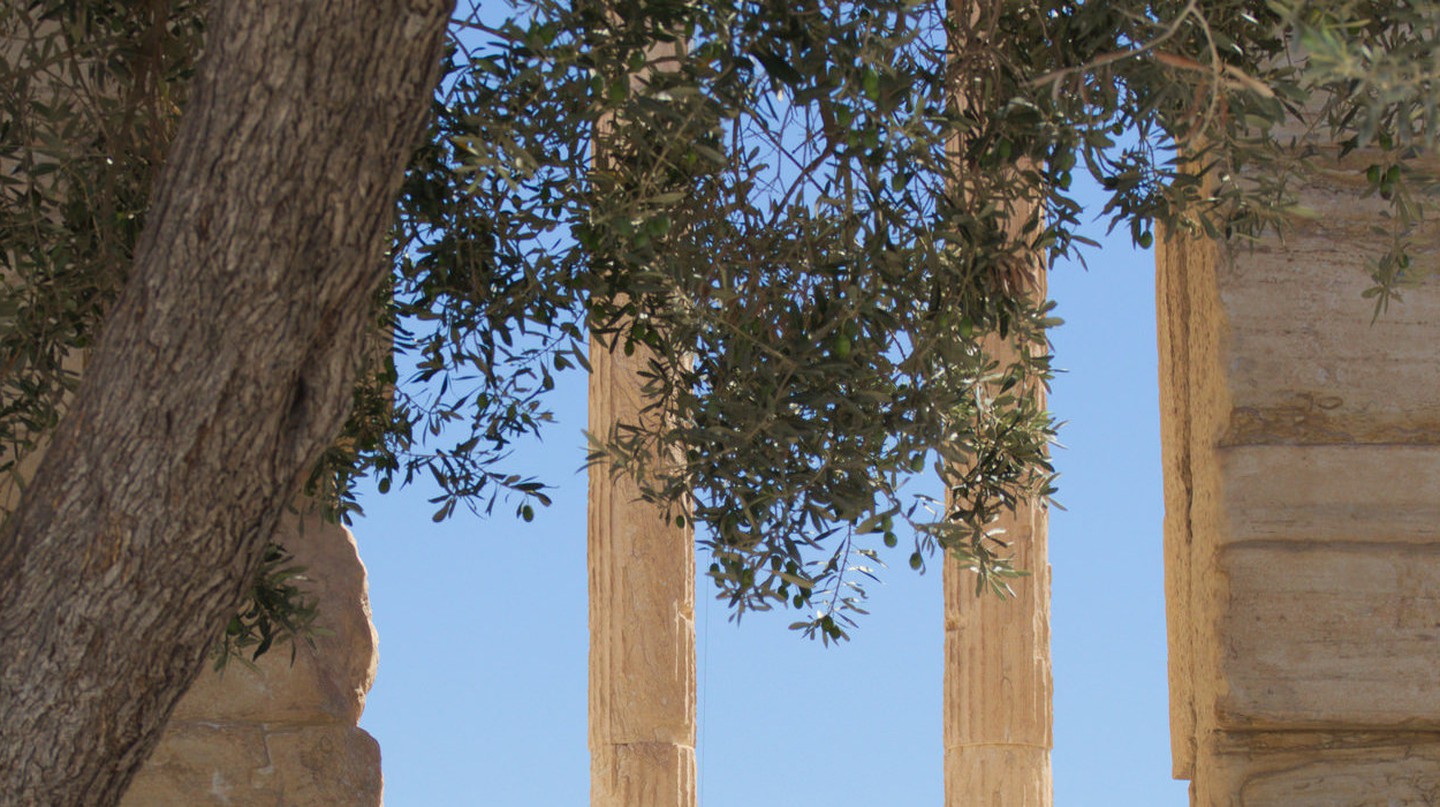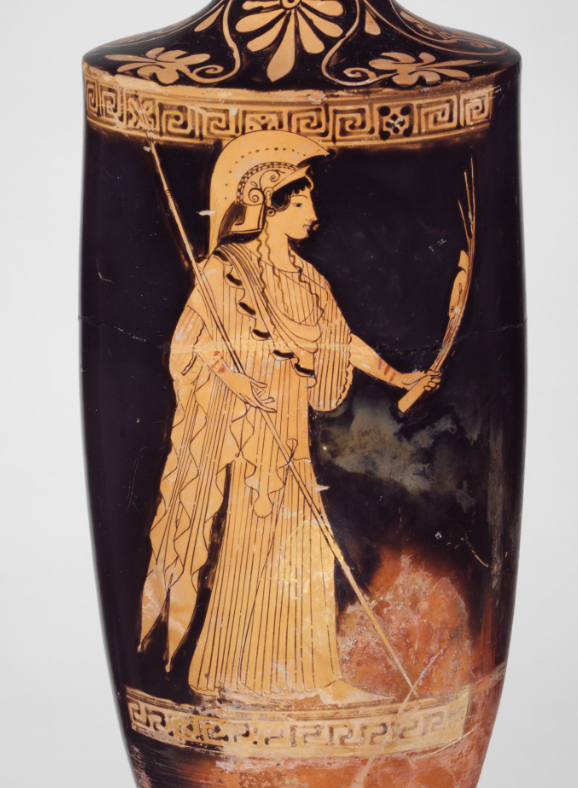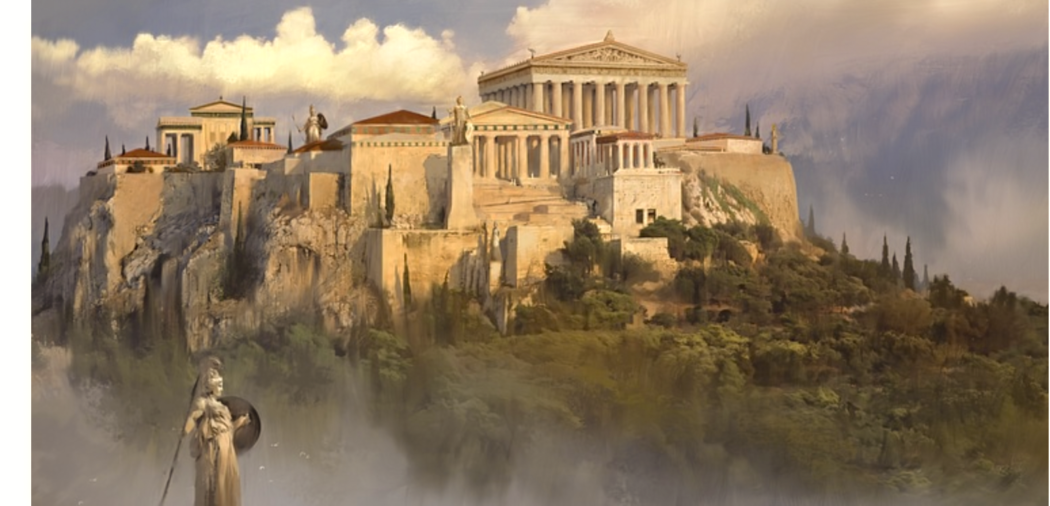
The myth has it that long long time ago, a big contest was going to be held for winning the patronage of the city of Athens and its surrounding territory, Attica. The contest was to take place under the presiding witness of King Cecrops, the founder of Athens. The crowd gathered at the Temple of Parthenon which rose on the rocky hilltop overlooking the city of Athens. The two candidates of the glorious contest were Athena, the goddess of justice, wisdom and war skills, and Poseidon, the god of the seas. To win the guardianship of the city, Athena and Poseidon, each were to offer a gift of value and benefit. The one who gives the most valuable gift and useful gift for the people of Athens would be honoured as the patron of Athens.

Poseidon was the first one to make his offer. He came up and with all his might struck his trident in the rocky ground where a fountain of water gushed forth. But the water was proven to be salty and therefore not so useful an offering for the people. Next it was Athena’s turn. She stepped forward, plunged her spear on the ground, knelt down and quietly buried a small branch. An olive tree sprung up from the earth from where she sowed, close to the fountain of water. Content with the result, she calmly called King Cecrops to come and witness. Poseidon, in all his anger challenged Athena but Zeus intervened and ordered the constitution of a divine tribunal to decide which of the gods should be granted the patronage of the city. The tribunal of Olympian deities, after listening to the witness of Cecrops decided to choose Athena. It was she who had the right to govern the land because she has given the most valuable gift —the first olive tree — whose fruits were found to be very nourishing, the oil was a source for the lamps, for cooking and for medicine, the leaves would feed their animals in winter and the wood would burn well in the fireplaces emanating a sublime scent, and it would also be used in building boats and houses. Hence the city took on the name Athens.

Since then the olive tree is revered as a sacred symbol of peace, prosperity and revival. It is believed that the olive trees growing on the grounds of the Acropolis of Athens today are the offsprings of the olive tree grown by Athena. They have been witnesses of time ever since the day of the contest.
Duygu Bruce







